Best Raspberry Pi Books You Should Read
Getting started with the Raspberry Pi isn't difficult. However, mastering the Raspberry Pi takes practice, experimentation, and resources. Among the top places to learn about the Raspberry Pi, you'll find written guides online and in print. Check out the best Raspberry Pi books you should read, from robotics guides to general overviews, and everything in between!
1. Learn Robotics with Raspberry Pi - Matt Timmons-Brown
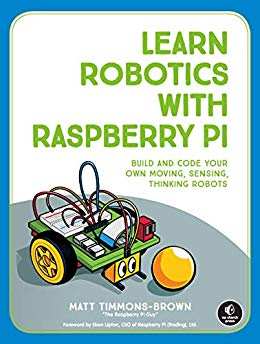
Learn Robotics With Raspberry Pi by Matt Timmons-Brown makes building robotics using a Raspberry Pi accessible. This guide to building and coding chronicles how components connect and software interfaces with hardware. As such, you'll learn not only what to do but why as well. Understanding why you're connecting various parts is equally as important as fitting them together. Timmons-Brown gives an overview of the physical build process, provides circuitry diagrams, and makes it simple enough for beginners to grasp. It doesn't require in-depth programming knowledge, or Raspberry Pi familiarity. Moreover, the listed components may be sourced on the cheap for an affordable build.
2. Programming the Raspberry Pi: Getting Started with Python - Simon Monk
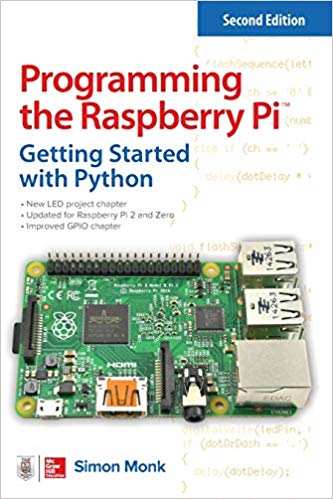
Simon Monk of Monk Makes acclaim, authors a nifty guide for Python programming on the Raspberry Pi, Programming the Raspberry Pi: Getting Started with Python. You'll learn how to make your own games, code fun projects, and find out about the official Debian-based Raspberry Pi operating system (OS), Raspbian. There's no previous programming experience expected, so Monk's Python programming on the Pi book remains a spectacular source of learning for both experts and beginners.
3. Adventures in Raspberry Pi - Carrie Anne Philbin
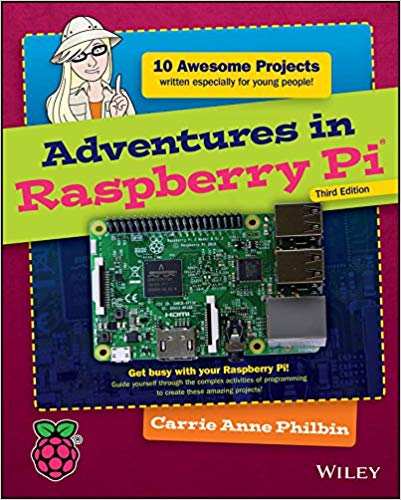
Raspberry Pi tinkering isn't merely for adults. On the contrary, loads of Raspberry Pi projects for kids offer intuitive introductions to Raspberry Pi hardware and software. Carrie Ann Philbin's Adventures in Raspberry Pi book delves into Raspberry Pi programming. At a fundamental level, it's an engaging read which touches on game creation, Minecraft, music coding, and more. School teacher-turned author Philbin truly presents a Raspberry Pi book for young audiences which proves that maker tech is totally digestible. Featuring 10 neat projects, Adventures in Raspberry Pi forms an excellent starting point for budding makers.
4. Raspberry Pi Sensors - Rushi Gajjar
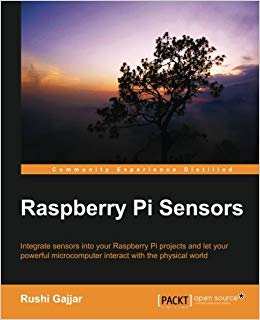
Sensor data and sensor data collection function well with the Raspberry Pi since it's a device well-suited to Internet of Things (IoT) applications. Author Rushi Gajjar, an embedded systems developer and electronics guru, writes this guide to using sensors with the Raspberry Pi. With Raspberry Pi Sensors, you'll get started creating do it yourself weather stations, smart home hubs, and security systems. Though the topic might sound difficult, there's little to no programming or hardware knowledge required. Each chapter provides an excellent overview of the topics, which include ADC, I2C, and more.
5. Raspberry Pi Projects for the Evil Genius - Donald Norris
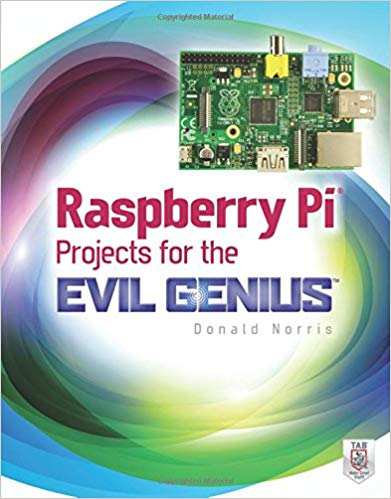
While its name may connote nefarious endeavors, the Donald Norris-written Raspberry Pi Projects for the Evil Genius doesn't live up to the evil in its title. However, you might feel like a Victor Frankenstein-caliber mad scientist, as this Raspberry Pi book will have you creating Raspberry Pi smart home automation projects, robotics, a universal remote, and even a basic web server. Despite its modest specs, the Raspberry Pi can run WordPress, Drupal, Python, Apache, and NGINX.
6. Raspberry Pi Cookbook - Simon Monk
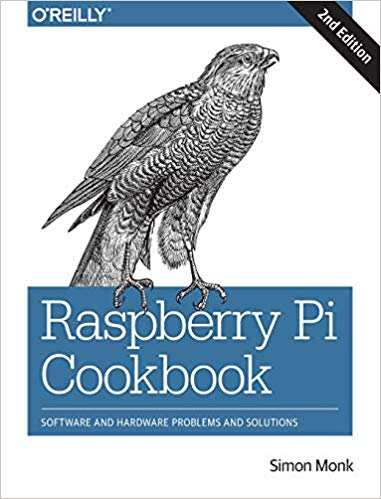
The renowned Simon Monk will have you getting started with the Raspberry Pi in a jiffy with the Raspberry Pi Cookbook. This Raspberry Pi essential read begins with setting up a Raspberry Pi and getting connected to the internet, and proceeds through Linux distros for the Raspberry Pi, Python programming, GPIO connectors, using motors, keypads, and switches, plus more. It's a comprehensive yet now overwhelming Raspberry Pi guide.
7. Learn Robotics Programming: Build and Control Autonomous Robots Using Raspberry Pi 3 and Python - Danny Staple
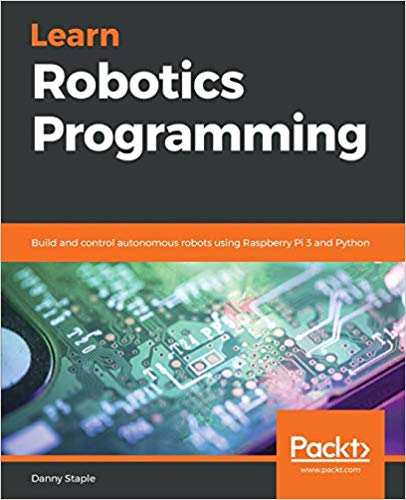
DIYer, hobbyist, and robotics expert Danny Staple crafts an engaging, informative read in Learn Robotics Programming: Build and Control Autonomous Robots Using Raspberry Pi 3 and Python. Staple served as a Coder Dojo mentor, and ran a LEGO Robotics Club, thus affording him an uncanny ability to present complex topics in a digestible manner. In no time, you'll whip up a wheeled robot with a Raspberry Pi, not only learning how to make a robotics gadget, but also programming and hardware principles.
8. Raspberry Pi For Kids For Dummies - Richard Wentk

The For Dummies books once reigned supreme, and Richard Wentk's Raspberry Pi for Kids for Dummies book is a must-read for aspiring Raspberry Pi tinkerers. This fantastic Raspberry Pi book lends an overview of how to configure a Raspberry Pi, program with Python and Scratch, build websites, create games, make art, and more. Sporting 13 delightful projects, it's easily one of the top Raspberry Pi reads for kids.
9. Penetration Testing with Raspberry Pi - Michael McPhee, Jason Beltrame
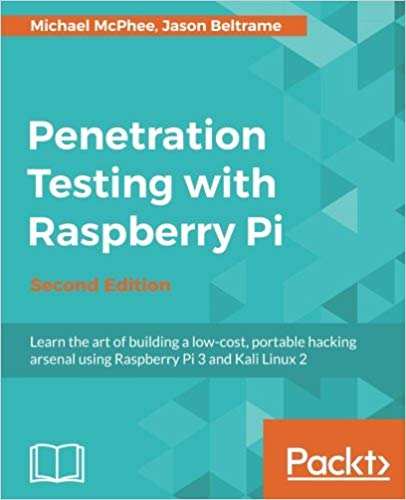
With Kali Linux on the Raspberry Pi, you can create a low-powered, affordable ethical hacking device. Level up your penetration testing skills with the appropriately titles Penetration Testing with Raspberry Pi, authored by Michael McPhee and Jason Beltrame. Aside from learning pen testing, this excellent read probes the theory of cybersecurity as well.
10. Raspberry Pi and Visual Basic: Programming Windows 10 IoT - Carl Shackelford
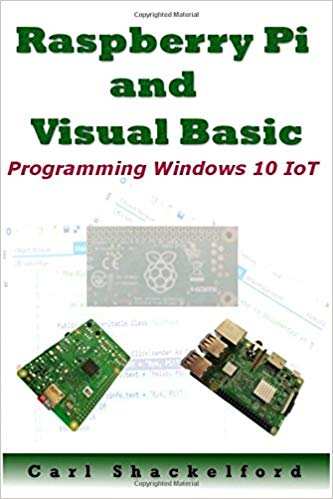
Electronics enthusiast Carl Shackelford writes this superb guide to Windows 10 IoT and Visual Basic programming. It's not ideal for beginners, and does command a bit of Visual Basic fundamental knowledge. However, it's a phenomenal read for anyone with an interest in VB and Windows 10 IoT Core which will get your Visual Studio journey jumpstarted.
Best Raspberry Pi Books You Should Read: The Last Chapter
There are loads of Raspberry Pi reads on the market, from in-depth guides with tutorials to books concentrating on hardware and programming theory, and even many tutorials online. If you truly want to elevate your Raspberry Pi experience, start reading. There's material for all ages, skill levels, and interests.
What Raspberry Pi books, magazines, and websites are you perusing?


































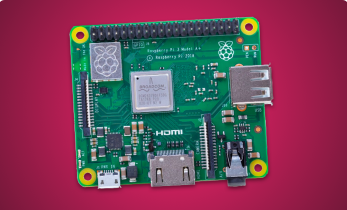
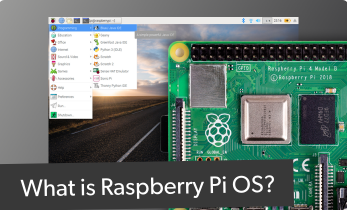






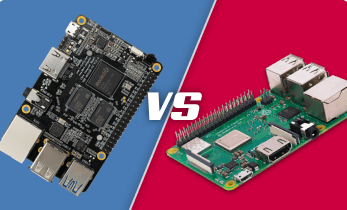




Leave your feedback...